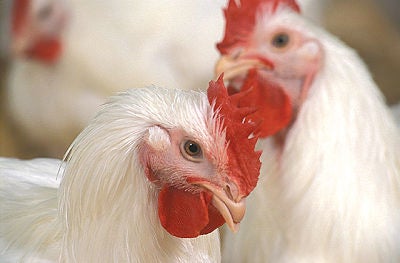
La página que intenta visitar sólo está disponible en inglés. ¡Disculpa!
The page you are about to visit is currently only available in English. Sorry!


Photo: Photo by Stephen Ausmus/ARS USDA
|
Last summer, when thousands of people were infected with salmonella from filthy, vermin-infested henhouses in Iowa, Americans were outraged to learn that the F.D.A. had never conducted a food safety inspection at these huge operations that produce billions of eggs a year. The new rules might have kept those people—mainly small children and the elderly—from getting sick.
The law would also help to protect Americans from unsafe food produced overseas: for the first time, imported foods would be subject to the same standards as those made in the United States. You would think that such reasonable measures to protect the health and safety of the American people would have long since sailed through Congress. But after being passed by the House of Representatives more than a year ago with strong bipartisan support, the legislation has been stuck in the Senate. One sticking point was the fear among small farmers and producers that the new regulations would be too costly—and the counter-fear among consumer groups that allowing any exemptions for small-scale agriculture might threaten public health. Those legitimate concerns have been addressed in an amendment, added by Senator Jon Tester of Montana, that recently was endorsed by a coalition of sustainable agriculture and consumer groups. But now that common sense has prevailed, the bill is under fierce attack from critics—egged on by Glenn Beck and various Tea Partyers, including some in the local food movement—who are playing fast and loose with the facts.
|